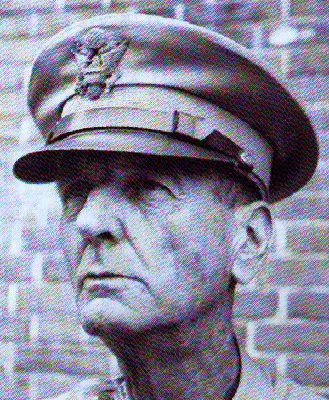 |
|
General Jonathan Wainwright was one of the senior-ranked prisoners held in the camp. Provided to China Daily and Chen Yongrong / Xinhua |
Endgame
Qu said: "By 1945, the Japanese army was losing ground in most of China, and victory was almost assured. But Japan blocked the news from the POWs because it wanted to use them to blackmail the Allies and save the day."
The Japanese also asked Wainwright to write a letter to the US government on behalf of Japan, but he refused, he added.
It wasn't until the US sent a team to liberate the camp that the prisoners' days in hell came to an end.
Qu recalled that Leith had told him that Wainwright was extremely anxious when they met, because he was concerned that the US government and people would despise him for surrendering in the Philippines.
The POWs left Liaoyuan on Aug 24, 1945. It was the rainy season and the cars became bogged down in the muddy roads. According to Qu, Leith once told him, "Chinese along the road gave them water, food and helped them free cars that occasionally became trapped in the deep mud."
After the war, Wainwright wrote of his gratitude to the local people: "Without the help of the Chinese, I wouldn't have survived to leave, even though I had been rescued."
Liu Mingtai contributed to this story.
Contact the writers through [email protected]